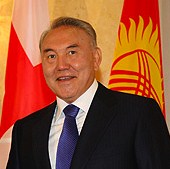It is no accident that European Union foreign policy chief Catherine Ashton proposed, and Iran has accepted, holding the next round of nuclear talks in Kazakhstan on Feb. 25. Iran had recently rejected proposed talks in Istanbul on Jan. 28-29, presumably due to irritation with Turkey’s efforts to overthrow Syria’s pro-Iranian government. Citing a desire to reduce regional tensions and avert an escalation of the Iranian nuclear crisis, Kazakhstani Foreign Minister Erlan Idrissov reaffirmed his country’s readiness to host the next round of talks during a late-January visit to Moscow.
The relationship between Iran and Kazakhstan is driven by pragmatism on both sides. Kazakhstan seeks to prevent Iran from causing regional instability through its nuclear program and support of regional terrorism, while looking for opportunities to expand economic ties and reduce tensions between Iran and its neighbors. For its part, Iran’s isolation has led it to seek good relations with Kazakhstan, whose international influence has risen during the past decade, and ideally to find opportunities for regional trade and investment, while discouraging Kazakhstan from supporting military operations against Iran.
Bilateral trade between the two countries currently amounts to roughly $1 billion annually, with Iran buying grain, metals and oil from Kazakhstan and exporting food, clothing and some oil as well. (Iran imports Kazakhstan’s oil for its oil-poor northern provinces while selling equivalent amounts from its southern oil fields to the world market on Kazakhstan’s behalf.)

